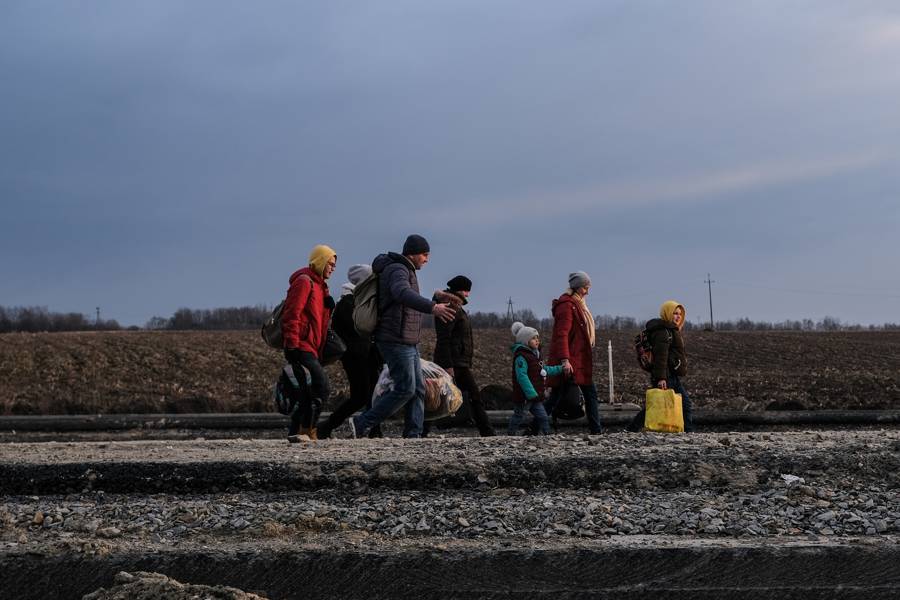
Responding to the global human toll of the war in Ukraine, more than a year on
Last year, as the invasion of Ukraine sent shock waves around the world, the Stavros Niarchos Foundation (SNF) made grants to six organizations working in Ukraine and around the world, seeking to support those who are most vulnerable yet all too often not reached with assistance.
This includes not only those in or forced to flee from Ukraine, but also people around the world facing worsening food insecurity as a result of dwindling flows of food and aid. Even as the war disrupted exports from Ukraine, a major global supplier of grain, the attention and financial support given to enduring hunger crises in other parts of the world by governments and the public waned.
SNF’s response aimed to help mitigate the dire effects of the war along both lines simultaneously, supporting both organizations with an established local presence in Ukraine and the region and international organizations working to shore up aid to other regions in crisis globally.
More than a year on, over 13 million people have been displaced from their homes in Ukraine. Meanwhile, disruptions caused by the war, coupled with additional crises like the sixth below-average rainy season in East Africa and conflict as in Yemen, are putting hundreds of millions of people at risk from hunger. The need for humanitarian aid remains pressing, too large for any single entity to tackle. Responding will require a collaborative approach that knits together local partners on the ground into an international, system-wide patchwork. These six organizations are part of this international fabric and remain committed to helping deliver essential aid—one community group, one family, and one individual at a time.
Choose Love
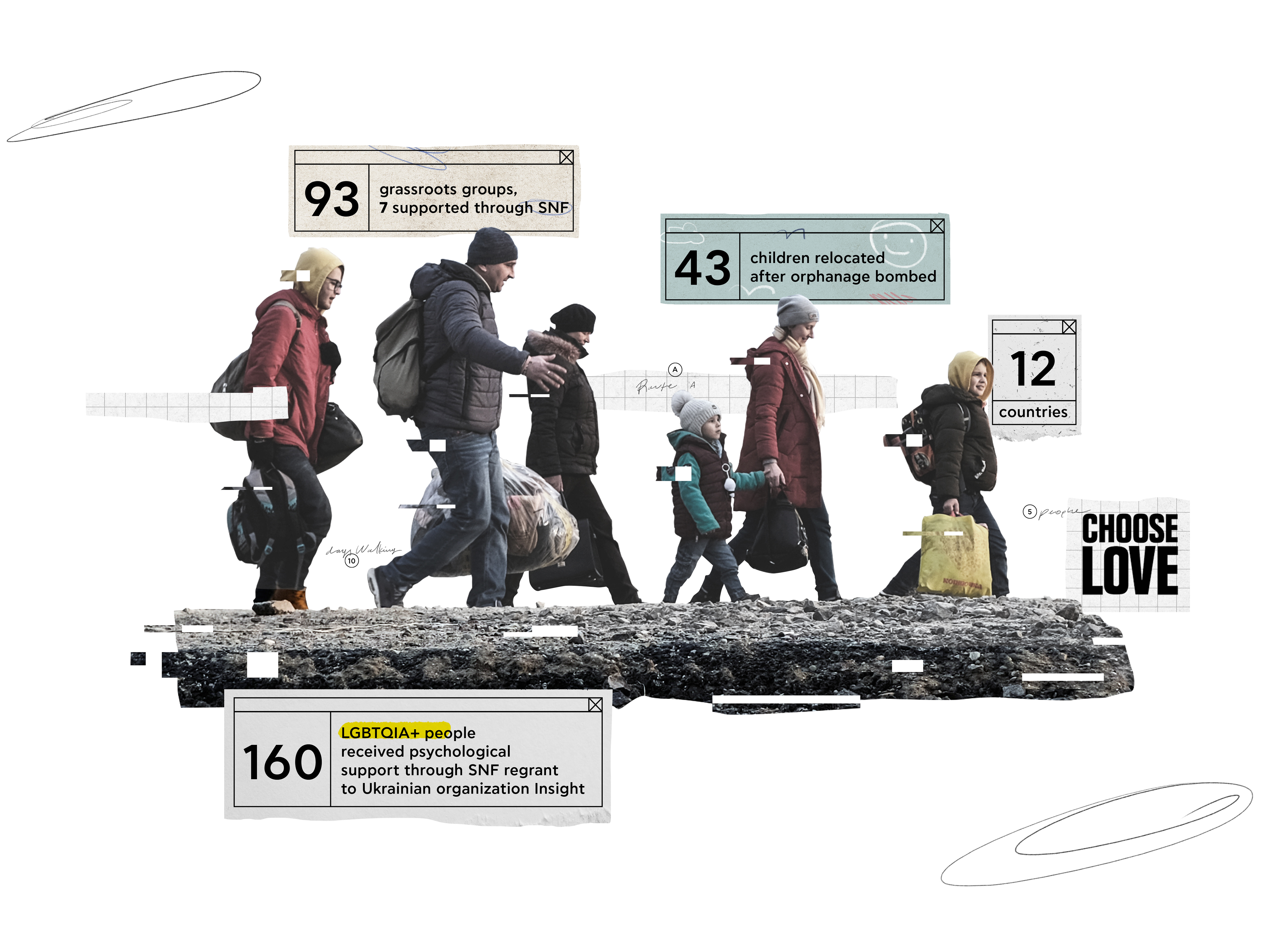
Choose Love’s approach to aiding vulnerable people on the move is partnering with local grassroots organizations, particularly those that work collaboratively and are led by refugees or people close to the communities served. Following this model, Choose Love redistributed SNF’s grant to smaller organizations working on the ground. Warsaw-based Foundation for Somalia helped meet food and other emergency needs. OutRight has worked to provide shelter, information, and help accessing medical care to LGBTQIA+ people affected by the war. Migrant Offshore Aid Station operates and equips a fleet of ambulances with medics providing care in the field. Children on the Edge is working to support children who are orphans, have disabilities, or have been displaced by running reception centers that provide food, psychosocial support, and help integrating into local educational systems in Romania and Moldova.
The Emergency Relief Fund at Doctors Without Borders USA and the Global Hunger Crisis Fund at Save the Children USA give these organizations leeway to address the most pressing humanitarian crises around the world, even when global media attention is focused elsewhere.
Save the Children is reaching children and families with healthcare, food and nutrition assistance, immunizations, cash transfers, hygiene kits, animal feed, educational activities for kids who are out of school, and more in countries like Ethiopia, Guatemala, Somalia, and Yemen.
Doctors Without Borders is working to respond to neglected crises in some of the hardest to reach areas of the world, including with emergency projects in Bangladesh, Central African Republic, Haiti, South Sudan, and Yemen. Their staff are on the ground responding to outbreaks of disease, performing surgery in conflict zones, helping women give birth safely, and treating malnutrition in children.
In Bangladesh, Doctors Without Borders is serving the over 940,000 Rohingya refugees living there, including people like Nabi Ullah and Nasima Khatun, Mohamed Hussein, and Hashimullah.
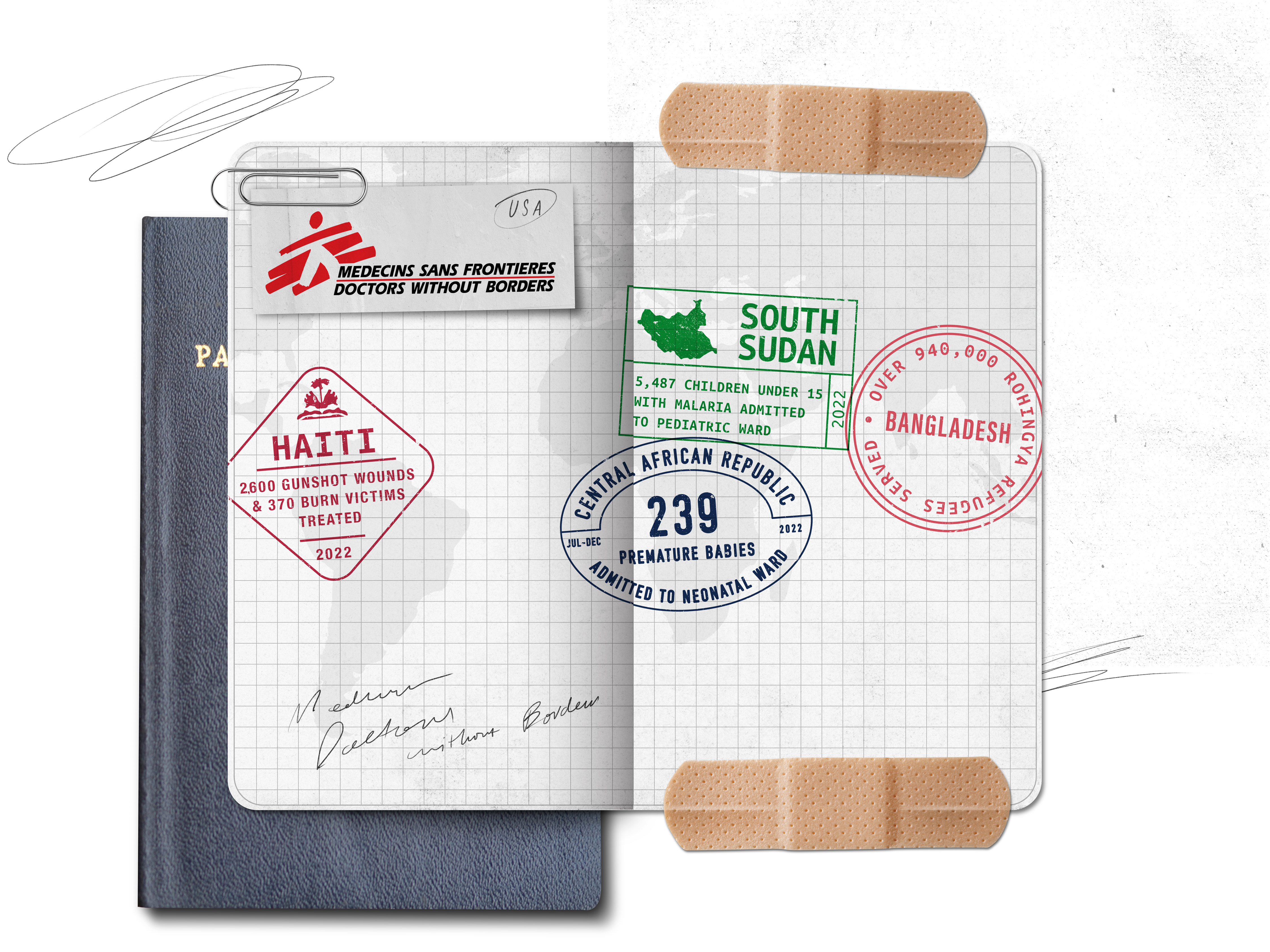
Lumos Foundation
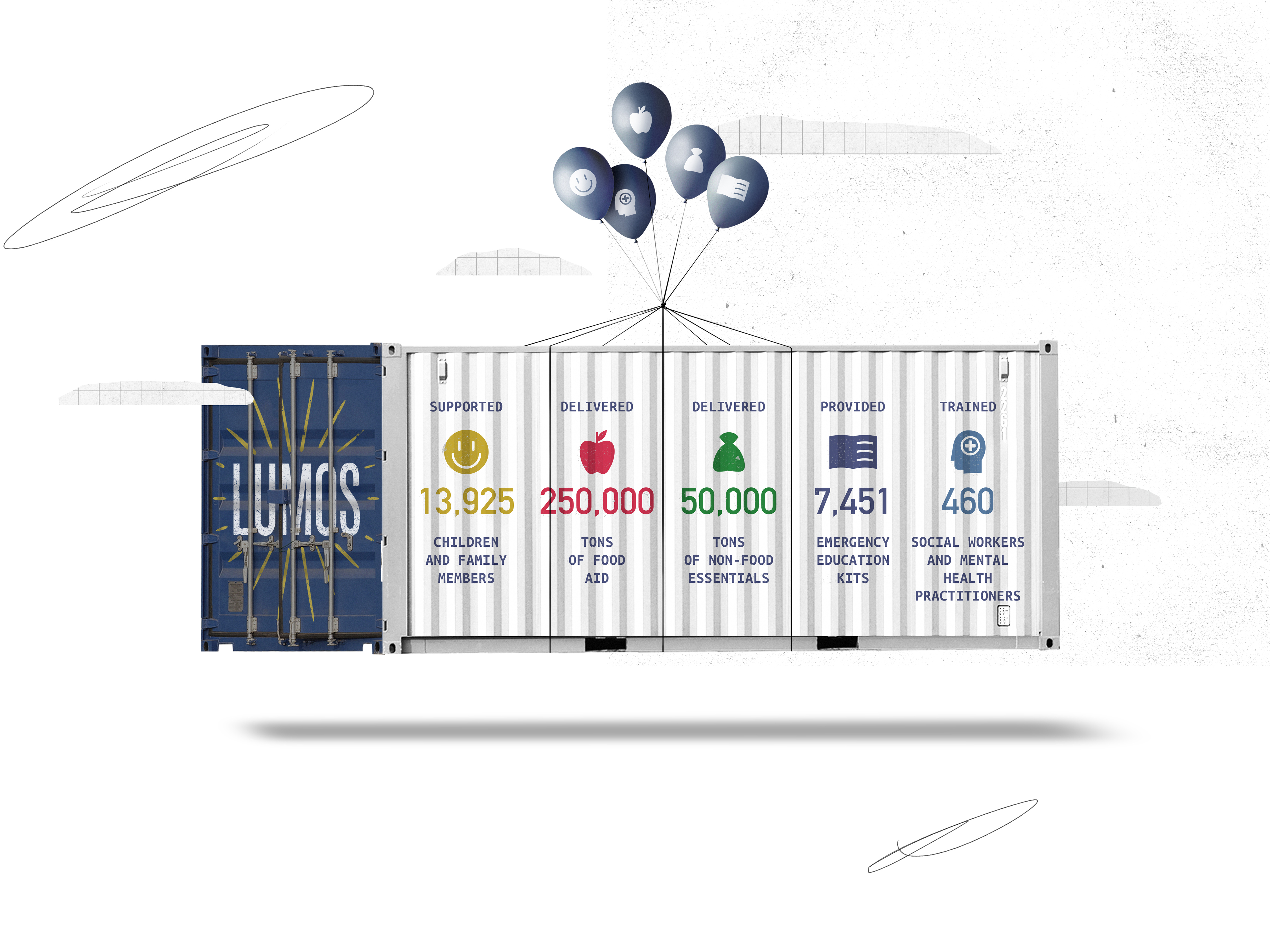
Before the war, Ukraine had one of the highest rates of children living in institutions in Europe. Focusing on these children, for whom the war has been particularly devastating, Lumos has worked to meet the immediate needs of children and families by providing food and other essentials, and to help mitigate the profound disruption to learning by providing educational resources. The organization makes a point of involving young people with lived experience, a Youth Advisory Board, to guide their work, and its training for caregivers and child protection professionals has gained national accreditation in Ukraine as the standard for mental health and psychosocial support.
Melissa Network
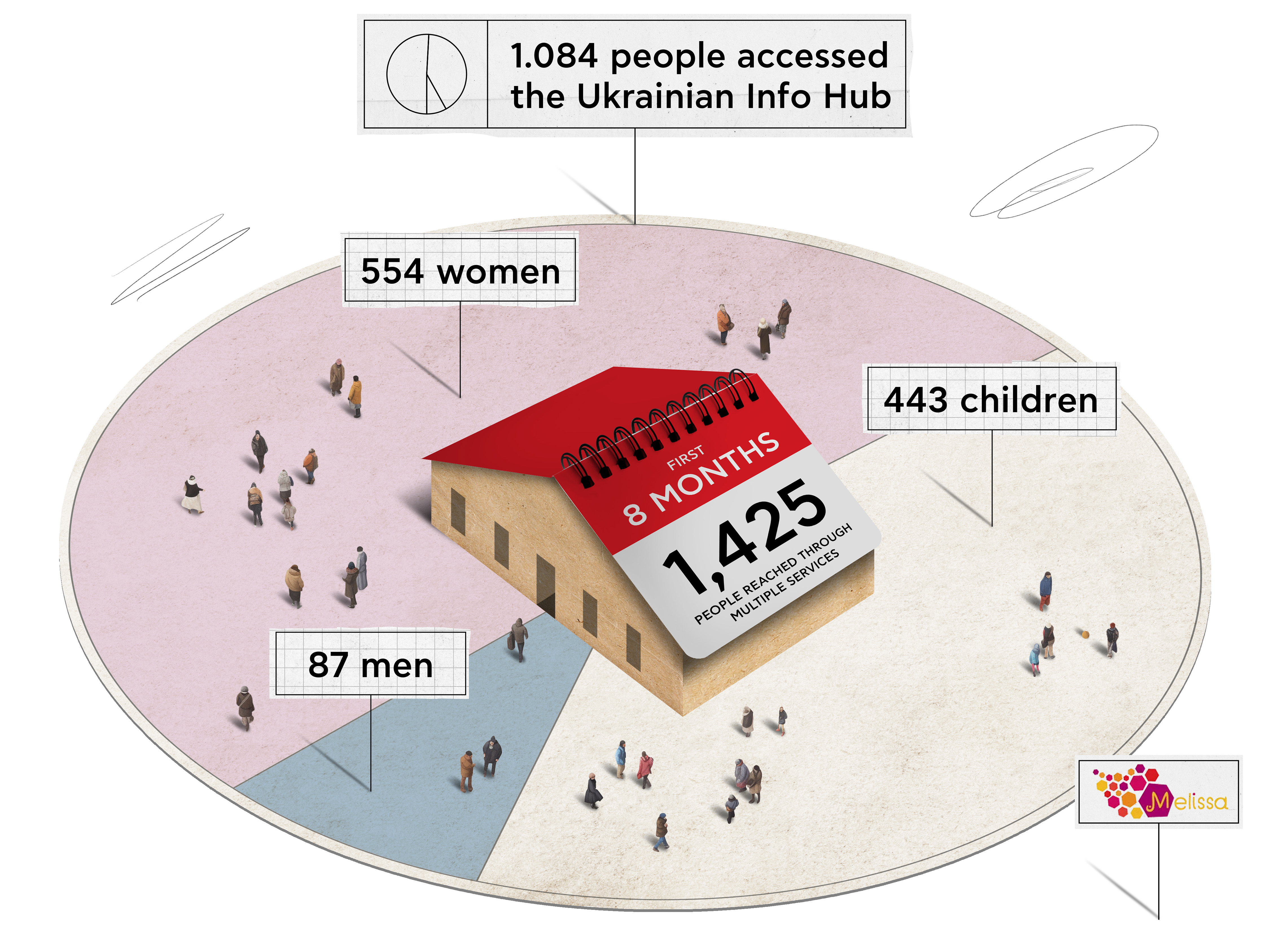
Melissa Network has worked closely with the Ukrainian community in Greece in order to respond to the influx of Ukrainian war refugees into Greece, facilitating the creation of the United Ukrainian Diaspora in Greece, a body that coordinates the Ukrainian community’s response and serves as an information hub about existing resources. Together with the Greek Council for Refugees, SOS Children’s Villages Greece, Babel Syn-Eirmos, and HIAS Greece, they have been providing psychosocial support and access to legal and employment services. In parallel, they have focused on children’s resilience through building a sense of community and maintaining links to their native language.
Médicos del Mundo
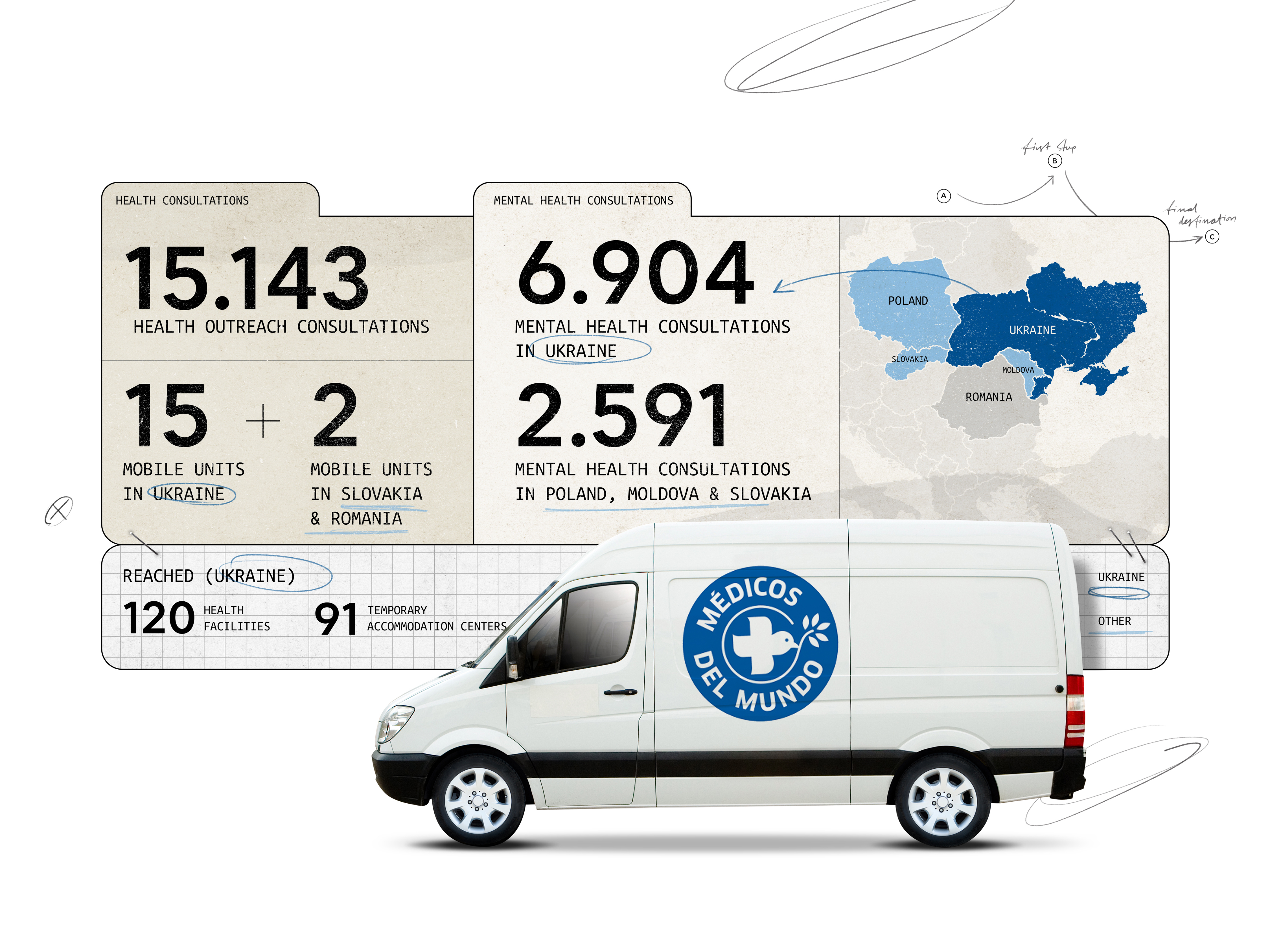
Médicos del Mundo has been an established presence in Ukraine for nearly a decade, since well before the current conflict. The organization’s primary aim has been ensuring access to physical and mental health care for those who would not otherwise have access, both in Ukraine and in neighboring countries. This includes mental health and psychological support services, primary care services, and reproductive health services. The organization’s work also involves working toward lasting systemic change, in helping local partners grow more resilient, improving coordination among nongovernmental organizations, and reducing the stigma of accessing mental health care.
*Data included as of May 2023